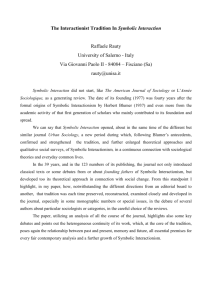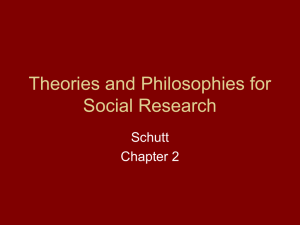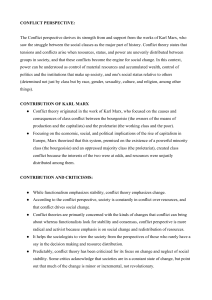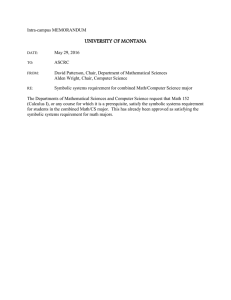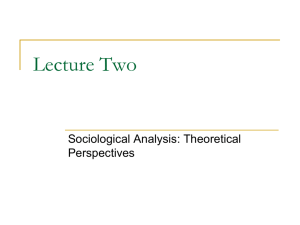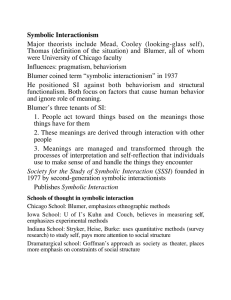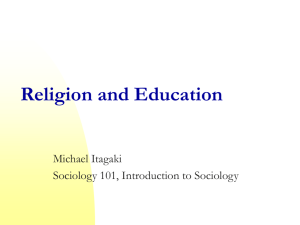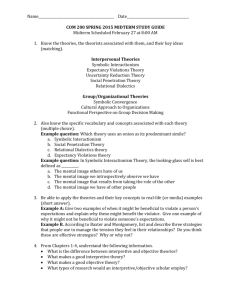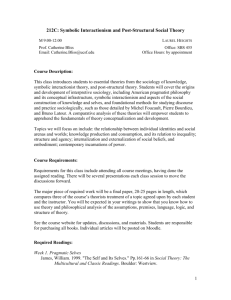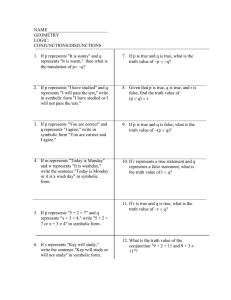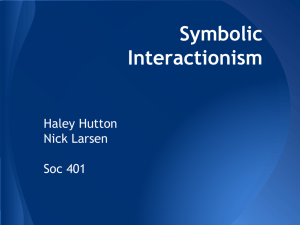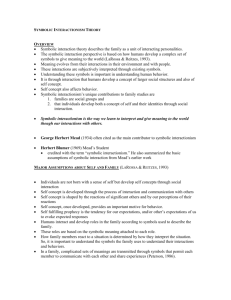Chapter 1: Symbols, Meaning and the Social Self
advertisement
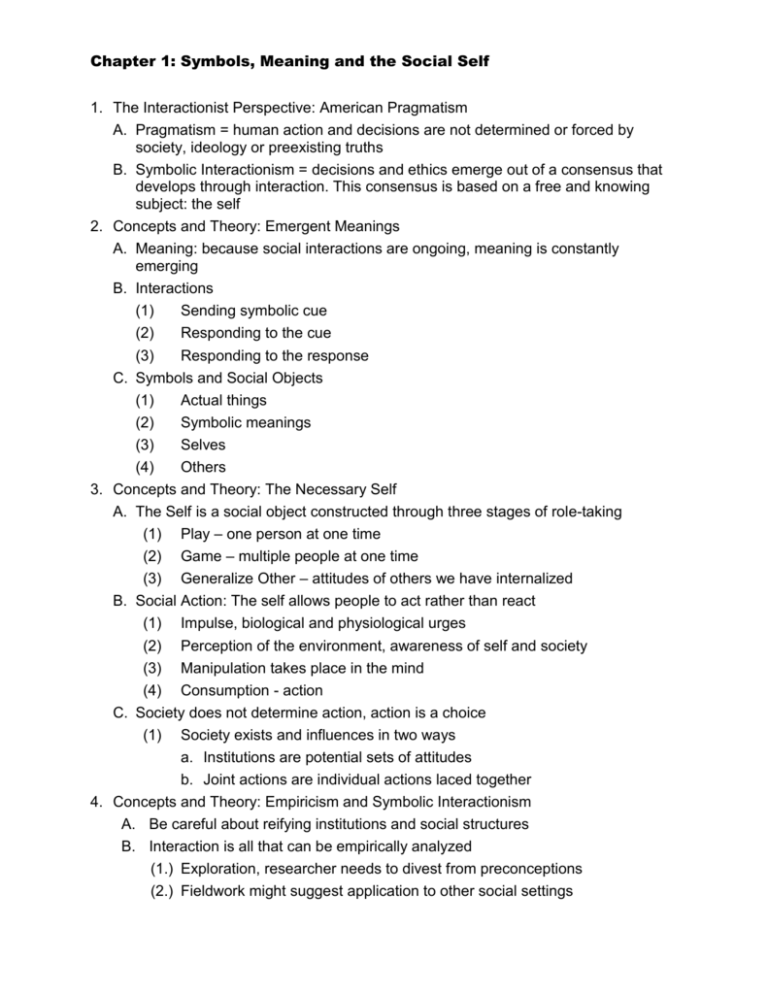
Chapter 1: Symbols, Meaning and the Social Self 1. The Interactionist Perspective: American Pragmatism A. Pragmatism = human action and decisions are not determined or forced by society, ideology or preexisting truths B. Symbolic Interactionism = decisions and ethics emerge out of a consensus that develops through interaction. This consensus is based on a free and knowing subject: the self 2. Concepts and Theory: Emergent Meanings A. Meaning: because social interactions are ongoing, meaning is constantly emerging B. Interactions (1) Sending symbolic cue (2) Responding to the cue (3) Responding to the response C. Symbols and Social Objects (1) Actual things (2) Symbolic meanings (3) Selves (4) Others 3. Concepts and Theory: The Necessary Self A. The Self is a social object constructed through three stages of role-taking (1) Play – one person at one time (2) Game – multiple people at one time (3) Generalize Other – attitudes of others we have internalized B. Social Action: The self allows people to act rather than react (1) Impulse, biological and physiological urges (2) Perception of the environment, awareness of self and society (3) Manipulation takes place in the mind (4) Consumption - action C. Society does not determine action, action is a choice (1) Society exists and influences in two ways a. Institutions are potential sets of attitudes b. Joint actions are individual actions laced together 4. Concepts and Theory: Empiricism and Symbolic Interactionism A. Be careful about reifying institutions and social structures B. Interaction is all that can be empirically analyzed (1.) Exploration, researcher needs to divest from preconceptions (2.) Fieldwork might suggest application to other social settings
